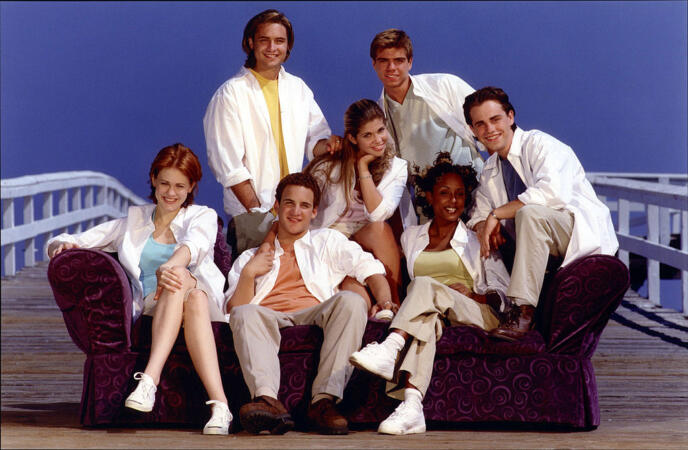Boy Meets World stars Trina McGee and Will Friedle opened up about the time he called her “Aunt Jemima” on the set.
McGee talked about the incident on the Pod Meets World podcast hosted by Friedle and fellow Boy Meets World co-stars Danielle Fishel and Rider Strong. On the podcast, McGee recounted a moment she had written about on social media–Friedle called McGee the name behind the scenes of the show.
Friedle said regarding the comment, according to Atlanta Black Star, “In my head, I attached no cultural significance to that whatsoever. I saw a person who I thought was my friend but didn’t know all that well wearing a big, red hat.”
For the record, Aunt Jemima doesn't wear a red hat--early iterations of the character were more racist in nature, and she wore a red, patterned headscarf.
The character had been redesigned several times over the years, with the last iteration being a kindly looking older Black woman with coiffed hair and pearl earrings.
“You and I still hadn’t worked together a ton, but in my head, you were a part of the cast, so that means I’m gonna make fun of you,” Friedle continued. “So I thought, ‘Gonna make fun of her red hat.’ That’s as far as my dumb f—ing privileged mind saw it.”
Friedle said, "Right before I walked on for my part, I walked by and went 'love your syrup' and walked onto the set, thinking 'Boom, zing, just got her for her hat,' I heard Ryder laughing."
Friedle said that after he finished the scene, McGee came up to him.
“Oh, I was pissed,” McGee said.
“You were like, ‘That was not OK,'” Frielde said. “And I was like, ‘What?’ I had no idea what you were talking about. You went, ‘Referring to me as Aunt Jemima.’ I was like, ‘I assumed that was like you calling me the Jolly Green Giant.’ And you were like, ‘No. No, that’s not the same at all.’ You explained to me–you never use the time as an excuse, but in the mid-’90s, I had no idea the cultural significance of the Aunt Jemima character.”
McGee said she told her friends and family what happened.
“I just kept telling friends and family the story, and they were like, ‘No, he doesn’t sound racist, he just sounds really dumb.’ That was the feedback I kept getting.”
"This is the thing, Will," McGee continued.
“You become part of the issue nowadays when you have to move in spaces with people of color, and you don’t really have to, by right, but it would behoove you to learn as much about them as you can. You didn’t have to back then, nor were you told to, nor would it affect your check, nothing.”
The issue is now water under the bridge, but the exchange does show the lack of racial and cultural awareness that was par for the course in the 1990s.

